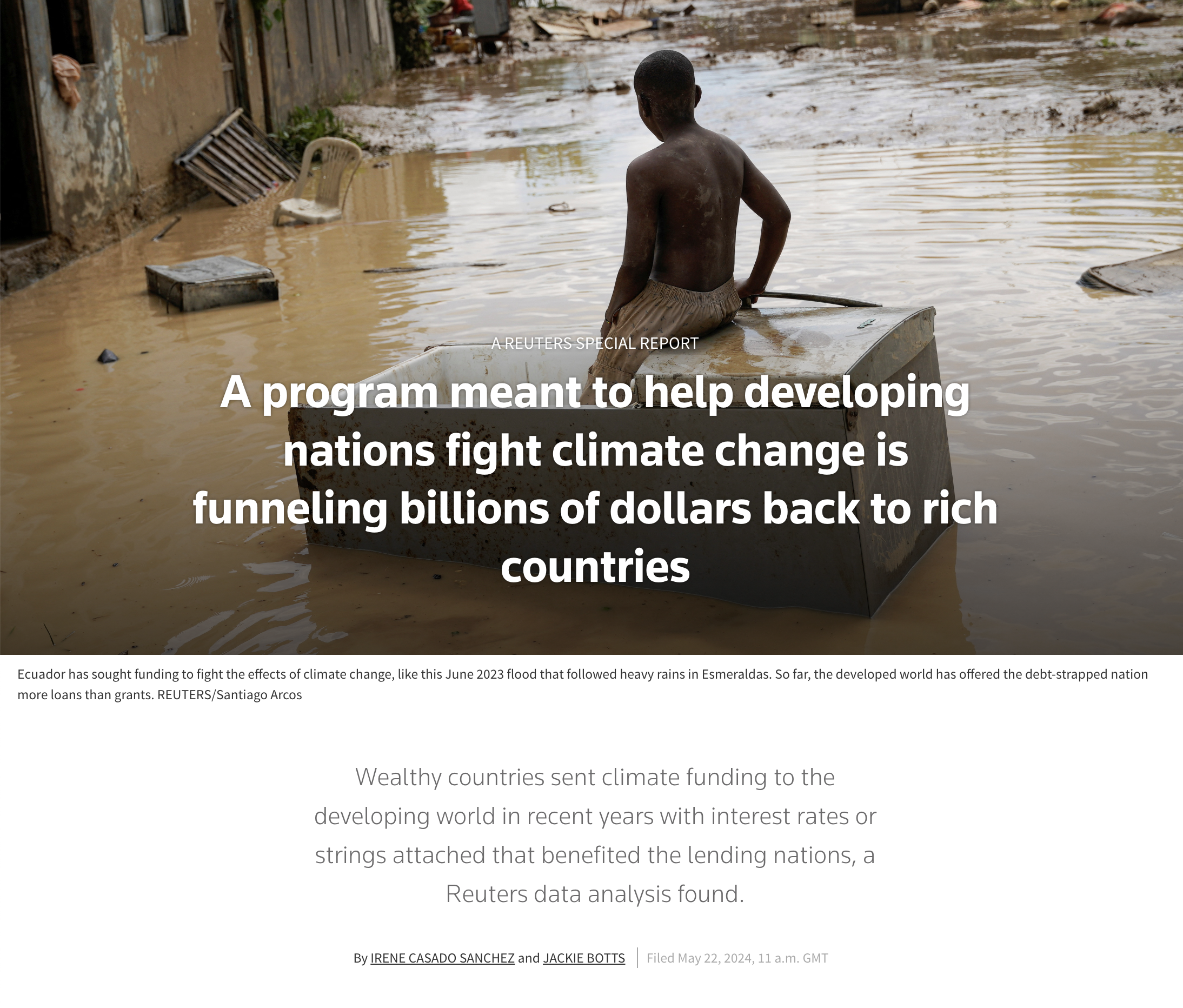Wealthy nations are reaping billions from a program meant to help developing countries. Here's how you can use the data behind this story
This week, Reuters published a special report in collaboration with Big Local News that shows how wealthy countries are reaping billions of dollars in economic rewards from a global program meant to help the developing world cope with the impacts of climate change.
First in 2009, and again in 2015 under the Paris Agreement, wealthy nations pledged to mobilize $100 billion annually to support developing countries in adapting to climate change and reducing their emissions.
The investigation details how billions of these funds have flowed back to wealthy countries through loan repayments, interest and work contracts.

The climate pledge did not state if grants should be prioritized over loans, nor did it establish rules that prevent rich countries from imposing advantageous terms for their own economies.
While wealthy nations do not break any rules under the Paris Agreement by reaping economic benefits from the climate program, they contradict the notion that rich countries should compensate developing ones for nearly two centuries of pollution, the main driver of climate change, according to climate analysts and scholars.
This report follows an initial investigation published in June 2023 which revealed that wealthy countries counted projects unrelated to climate change towards their climate finance contributions. Examples include Italy’s investment in chocolate stores and the U.S.’s funding for hotel construction in Haiti.
For today’s story, focused on the type of climate funding: grants, loans, etc., Big Local News and Reuters also updated a dataset based on the reports that countries submitted to the UN between 2015 and 2020, the latest year for which data is available. The data, cleaned and standardized, now includes additional records recently submitted by the reporting parties. It is available to download at the Stanford Digital Repository.
How can other reporters use this data?
Journalists and researchers can begin by looking at the story recipe that we released with the first version of the dataset.
This story recipe includes specific steps to filter the data to find out which kind of projects have been reported on your own country as well as the financial tools linked to them.
The Big Local News and Reuters’ analysis focuses on the overall picture of the climate finance system, but you can analyze the dataset by focusing on your own area of interest, such as a specific country or a specific reporting nation.
About Big Local News
From its base at Stanford University, Big Local News gathers data, builds tools and collaborates with reporters to produce journalism that makes an impact. Its website at biglocalnews.org offers a free archiving service for journalists to store and share data.
Learn more by visiting our About page.








